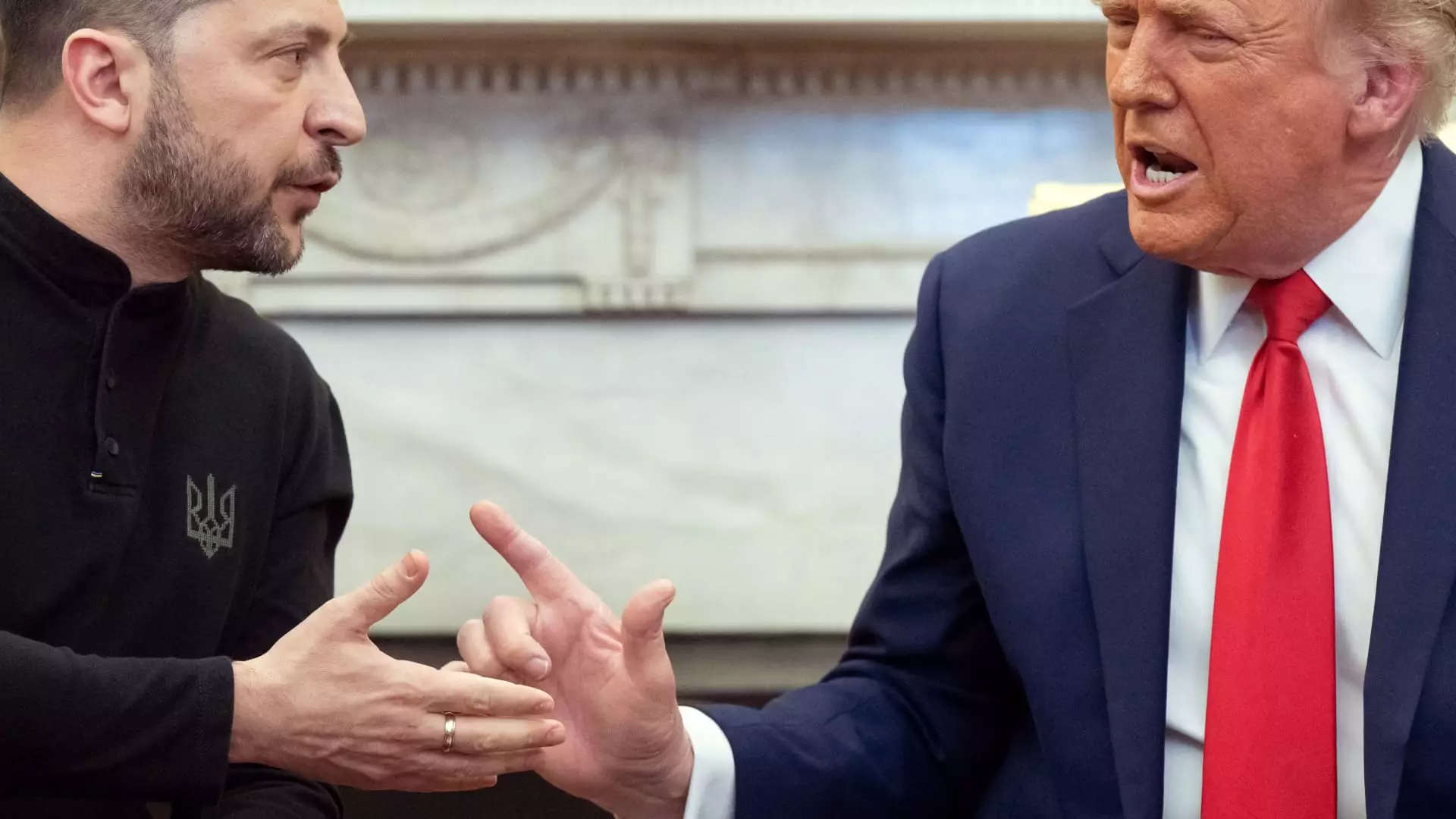In the evolving landscape of international diplomacy, the relationship between the United States and Ukraine remains a focal point of debate—especially within political circles in the U.S. Recently, House Speaker Mike Johnson’s remarks concerning Ukrainian President Volodymyr Zelenskyy sparked intense discussion. Johnson’s comments signal a growing critique of Zelenskyy’s approach to diplomatic negotiations and showcase the intricate ties between international relations and domestic political agendas.
Mike Johnson, representing Louisiana, articulated his discontent with President Zelenskyy’s recent behavior during a visit to the White House. His assertion that Zelenskyy “needs to come to his senses” reflects not only a frustration with what he perceives as a lack of appreciation from the Ukrainian leader but also illustrates the broader expectations of gratitude from U.S. allies. This perspective emerged amid a backdrop where significant military and economic support from the U.S. to Ukraine has become commonplace. The expectation is that Zelenskyy should express ongoing gratitude, particularly when U.S. interests are intricately tied to the outcomes of Ukraine’s struggles, especially concerning its mineral resources.
In his comments on “Meet the Press,” Johnson suggested that Zelenskyy’s actions during negotiations were counterproductive, indicating that the Ukrainian president had rejected the opportunity for a collaborative peace process. The emphasis here is not merely on gratitude but rather on a perceived obligation to engage constructively with U.S. leaders to foster a more progressive dialogue aimed at stability.
What further complicates this diplomatic tapestry is the involvement of former President Donald Trump and current Vice President J.D. Vance. During Zelenskyy’s visit, a tense exchange occurred, elucidating the friction between the U.S.’s expectations and Ukraine’s position. Trump’s assertion that Zelenskyy “doesn’t have the cards” to negotiate effectively highlights a fundamental power dynamic at play. The implication is that the United States possesses significant leverage, and thus, the ability to dictate terms more favorably to its interests.
Interestingly, the emphasis on negotiation surrounding a mineral rights agreement underscores a significant economic dimension. The rare earth minerals in question are vital for both nations, intertwining their futures economically and geopolitically. Johnson’s framing of the deal as a “win for everyone” suggests a strategic vision for strengthening ties through economic cooperation—a motivation for not just political survival but also for broader international stability.
Johnson’s discourse does not only hinge on international relations; it also intertwines with domestic policy debates, particularly regarding the recent $2 trillion budget reconciliation bill. The juxtaposition of fiscal responsibility with health care funding needs exemplifies the complexity within U.S. legislative priorities. As Johnson assured the public that Medicaid funds would remain untouched, skepticism arose concerning the interpretative nature of these promises among different political factions.
The underlying philosophy presents a challenge juxtaposed with public expectations—balancing budget cuts with crucial social services, which are essential for millions of vulnerable Americans. Amid proposed tax cuts reminiscent of Trump’s previous initiatives, Johnson’s remarks hint at a dual agenda: ensuring financial discipline while potentially risking significant social safety nets.
As the U.S. continues to navigate its role as a global leader, the expectations for both accountability and gratitude from allies like Ukraine become critical in the discourse. Johnson’s comments serve to remind us that international diplomacy cannot exist in a vacuum, and perceptions of entitlement, neglect, and engagement will shape future interactions.
The intricate balance of influences—from economic conditions tied to resources to voter expectations in domestic policy—will significantly influence how both Johnson and Zelenskyy approach negotiations going forward. Ultimately, fostering a partnership based on mutual respect and recognition may prove essential to achieving long-term stability not just in Ukraine but within the broader geopolitical framework. The complex dynamics at play call for a reevaluation of how nations reciprocate support and construct dialogues that are beneficial for all stakeholders involved.

